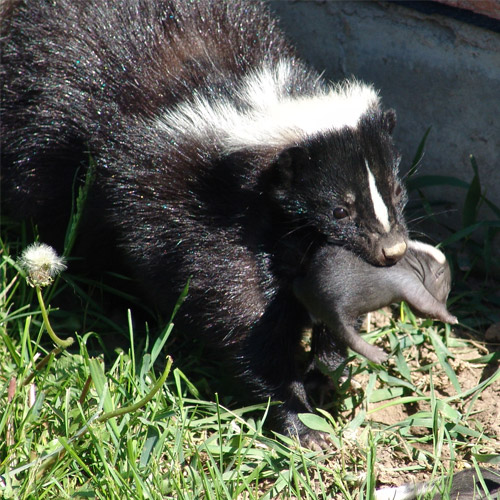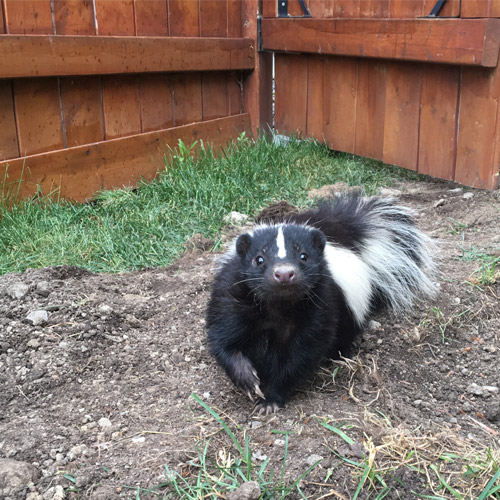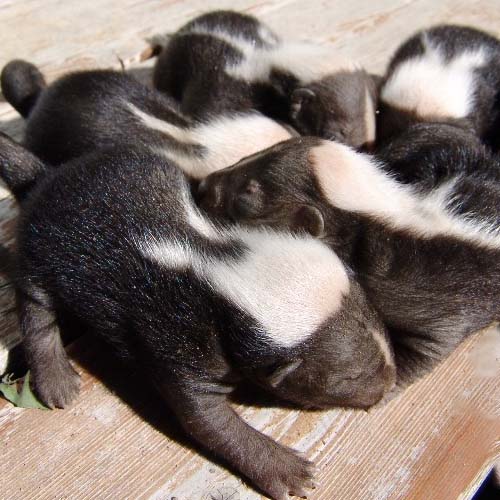Home / Wildlife Control Services in Vancouver / Skunk Problems
SKUNK PROBLEMS
A variety of skunk problems can occur when they decide to nest within a residential or commercial structure. The most obvious problem is their incredibly noxious smell. If sprayed onto buildings or surfaces, the odour can remain for weeks or even months in high enough concentrations. But the smell is actually of lesser concern when compared to some of the property damage and health risks these animals can cause. The following are some other common skunk problems and some warning signs for you to look out for:
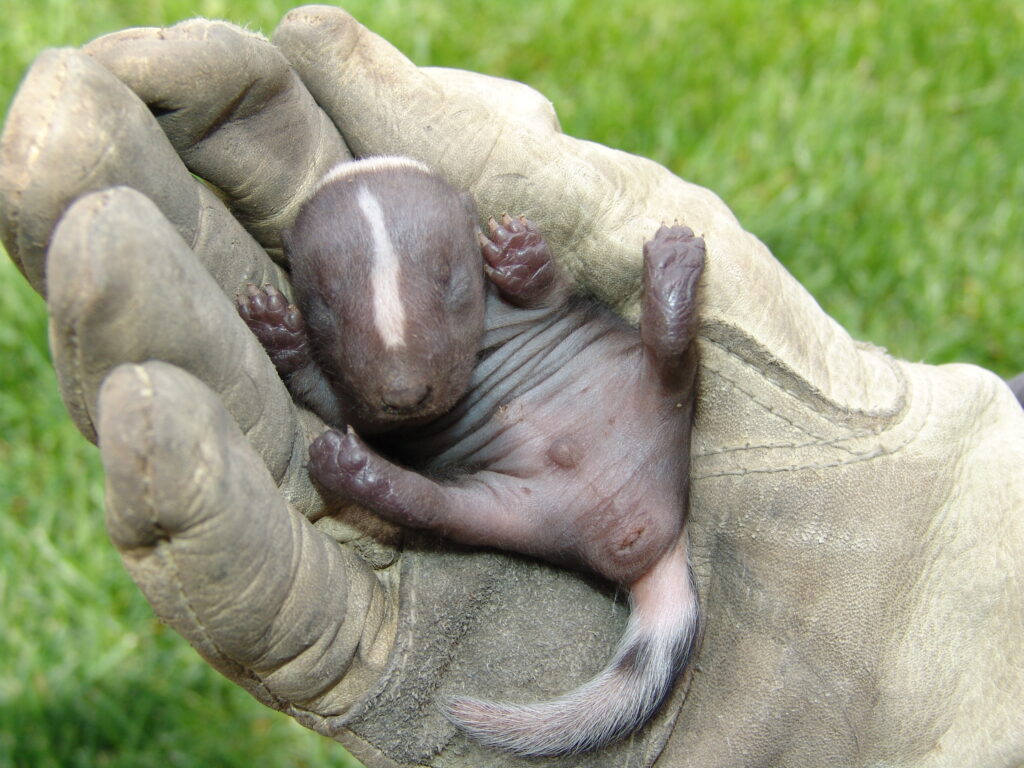
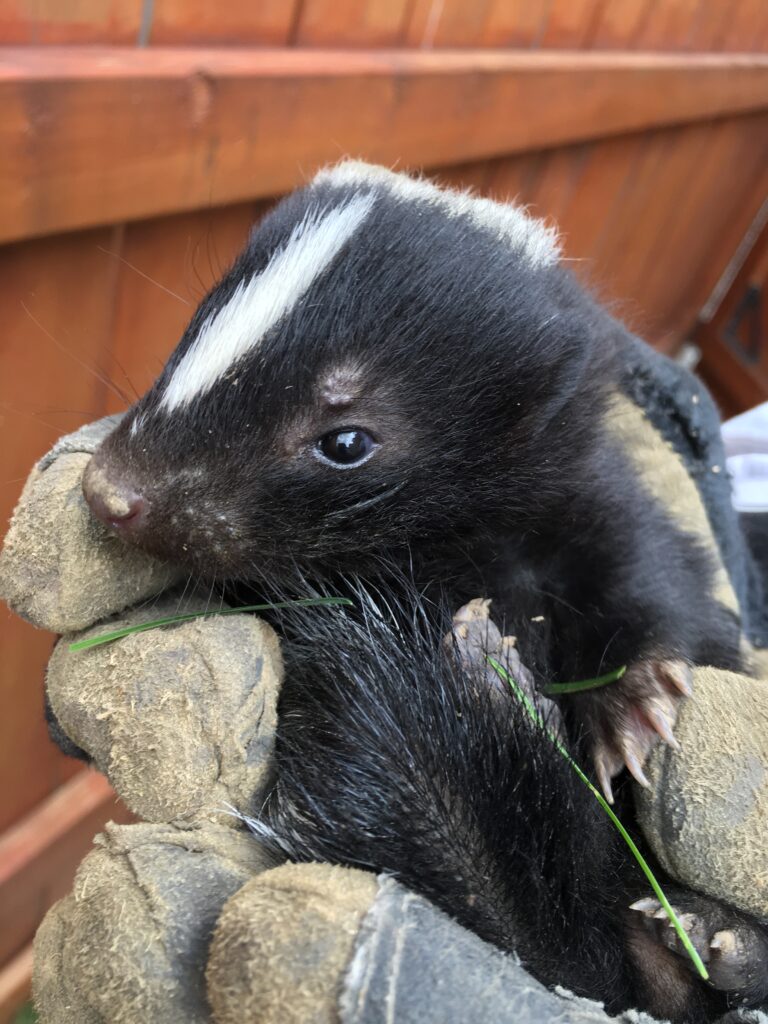
Property Damage
Burrowing under foundations: In the wild, skunks burrow underneath the base of trees. However in urban settings, they will burrow underneath solid foundations which can cause thousands of dollars in damage should structural elements shift or crack.
Chewing: If necessary, skunks will chew through wood and siding to make their burrows.
Lawns and gardens: Aside from garbage, skunks eat a lot of insects and grubs. It is not uncommon for skunks to dig up gardens and lawns in their search for food.
Health and Safety Risks
Rabies: Skunks have been known to carry and transmit the rabies virus. The proportion of skunks with rabies is greater than that seen in fox or raccoon populations which is why this is of concern. Infected skunks cannot be distinguished from healthy skunks so any possible contact with skunk saliva should be taken very seriously.
Noxious spray: Aside from the smell, the skunk spray can cause nausea, vomiting and even blindness because it contains sulphuric acid.
Discover more skunk facts and details by exploring further.
Food and Feeding
Time of day: Skunks are nocturnal and will venture out to forage most evenings.
Diet: Skunks are omnivores but prefer to eat plants, veggies, fruits, insects, grubs, small animals and eggs as well as anything left in accessible garbage cans.
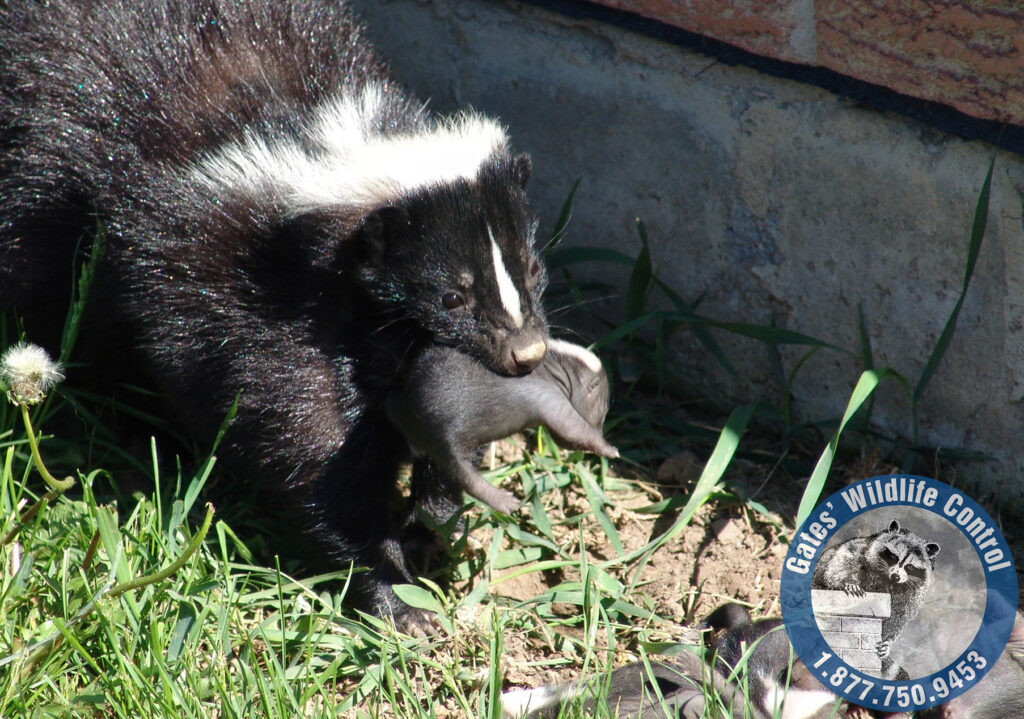
Morphology and Lifestyle
- Body length: 10-15 in
- Tail length: 10-15 in
- Weight: 1 – 4 kg
- Vocalization: Usually silent but can produce a bird-like noise
- Lifespan: Between 5 and 10 years
Did You Know?
- Skunk fact: Skunks can spray their scent glands up to 15 feet.
- Skunk fact: The skunk smell can remain on skin and pet hair for days, weeks and even months.
- Skunk fact: Skunks have poor eyesight and as such, their awareness of their surroundings is limited.
- Skunk fact: Skunk burrows can cause structural weakness in decks, porches, sheds and foundations.
- Skunk fact: Skunks will dig up lawns and gardens to find food.
- Skunk fact: Skunks can carry the rabies virus and not “look” infected.
39 Years Of Wildlife Removal Experience
At Gates Wildlife Control, we offer professional and effective animal removal and prevention solutions to keep raccoons, squirrels, and skunks from entering your home. We also provide effective rodent control services for mice and rat infestations. Our team is trained and experienced in the installation of one-way doors, which allow the animals to exit your attic or walls, but prevent them from returning. Contact us today for a free consultation and quote,to keep these animals out of your home for good.
Raccoons, squirrels, and skunks are common animals that can cause damage and create nuisances when they move into your attic or walls. They can chew on wires, damage insulation, leave droppings and debris, and even carry diseases and parasites.
One-way doors are a humane and effective way to remove these animals from your home and prevent them from returning. The doors are installed over the entry points the animals are using to access your attic or walls. Once the animals leave to forage for food, they are unable to re-enter the space through the one-way door.
At Gates Wildlife Control, we have the knowledge and equipment to effectively install one-way doors for raccoons, squirrels, and skunks. Our team will also assess your home and identify any potential entry points that need to be sealed off to prevent future intrusions.
In addition to installing one-way doors, we also offer repair services for damage caused by the animals and provide screening of potential entry points. This includes fixing holes in the roof or walls to prevent water from coming into the roof and walls and installing screens over roof vents, soffits and chimneys.
Don’t let raccoons, squirrels, or skunks take over your attic or walls. Contact Gates Wildlife Control today for a free consultation and quote, and keep these pests out of your home for good with our one-way door installation services.
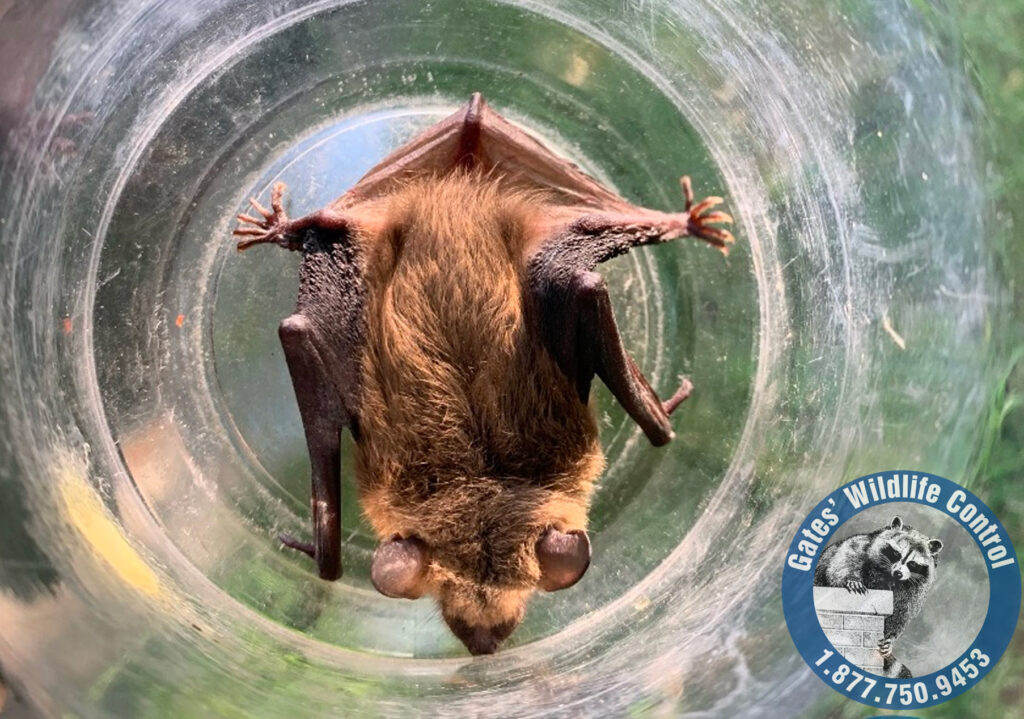
Morphology and Lifestyle
- Wing span: Big Brown Bats – 32 to 39cm; Little Brown Bats – 22 to 27cm.
- Weight: Big Brown Bats – 11 to 25g; Little Brown Bats – 5 to 11g.
- Vocalization: Bats use high frequency echo-location that is hard to hear with the exception of some clicking sounds.
- Lifespan: Between 10 and 20 years with the rare bat living as long as 30 years.
Did You Know?
- Bat fact: Bats play an important role in our environment as they can consume up to 3,000 insects in one night.
- Bat fact: Bats in Canada will not fly in your hair and suck your blood.
- Bat fact: Bats can spread the rabies virus when infected with very little to no evidence of contact.
- Bat fact: Bats can squeeze through a hole the size of a dime.
- Bat fact: A bat can produce several times its own weight in waste each month.
- Bat fact: Bat colonies can range in size from one to several hundred and can double in size every year.
- Bat fact: Bats hibernate when the temperature drops below 10 degrees C.
More About Skunks

Humane Raccoon Removal

Humane Skunk Removal

Humane Squirrel Removal
Do It Yourself Dangers
For those who may be tempted to take on the task of removing animals and animal proofing themselves, it is important to remember that it can be a dangerous undertaking. Falling off ladders and roofs while attempting to remove animals or seal entry points can result in serious bodily harm. In some cases, even aggressive animals can pose a danger to those trying to remove them. It is best to leave these tasks to experienced professionals who have the knowledge and equipment to safely and effectively handle wildlife removal and animal proofing. Attempting to do it yourself can put you at risk of injury and potentially even more damage to your home.










